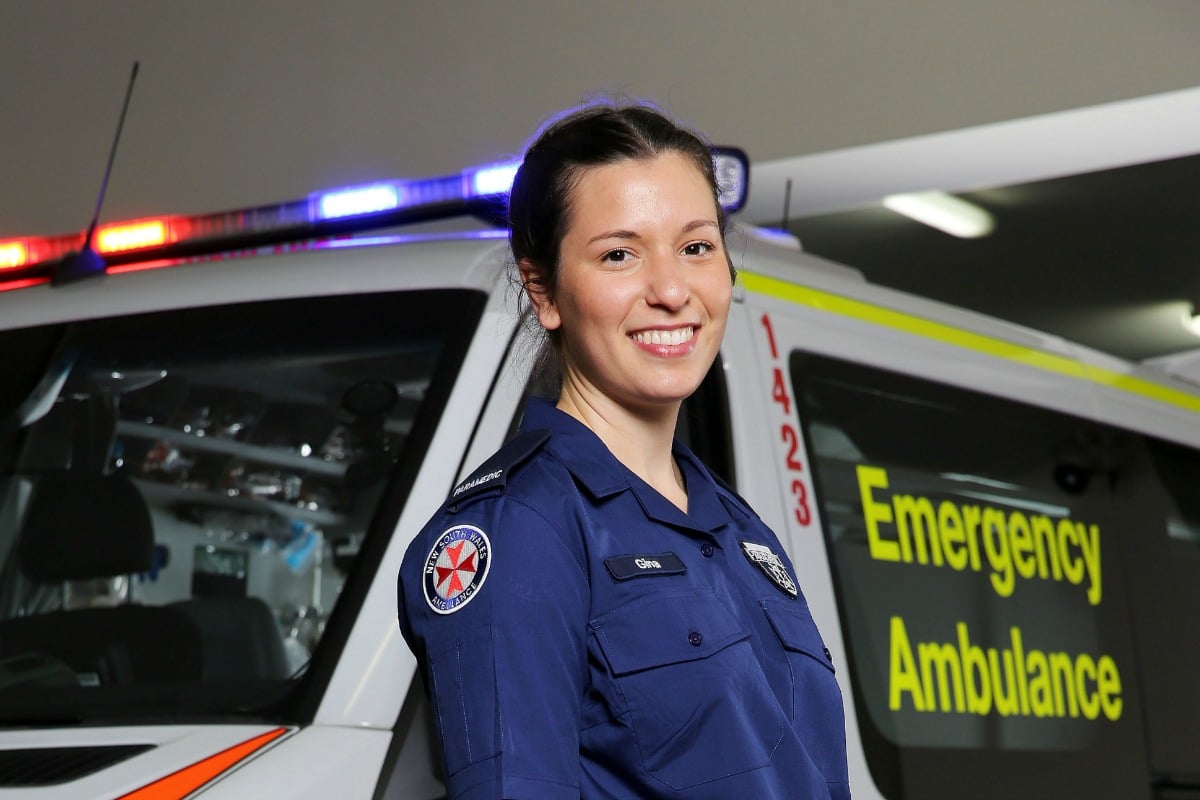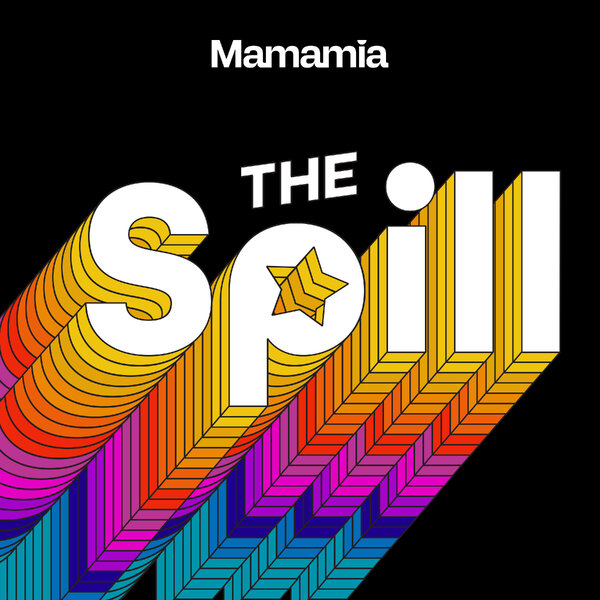
When she was five years old Gina Glazer was captivated by ambulances. The uniforms. The flashing lights and sirens. The speed at which they’d race by.
Sixteen years later, she earned herself that uniform. At 22, the Sydney woman is one of the youngest paramedics in the New South Wales Ambulance service, and she’s still just as captivated.
“I love being able to help people, and I love being able to learn people’s stories are what got them to where they are now,” she tells Mamamia. “The human interaction I have in this job. It’s just amazing.”
There’s no such thing as an average day for Gina. Based from the Sydney Ambulance Centre in Eveleigh, her shift begins at 6:15am and ends at 7 that night, though rarely does she finish on time. Call-outs can be related to anything from intoxication to childbirth, road accidents to attempted suicides. While speaking to us, she’s flagged down to attend to a man who’s overdosed on heroin.
“Nothing can prepare you for what you experience each day,” she said. “When you’re at university you have to ride-along, where you spend a couple of weeks on the ambulance, but it’s not the same as when the responsibility falls into your hands.”
But of all the cases she and her colleagues attend, as documented on Channel 10 series Ambulance Australia, there are some that tend to sit with Gina the most in her quiet moments.
“I’ve been to a couple of elderly people who have been stuck at home; they have no family or anyone looking after them, and when we arrive there’s no food in the fridge, they’ve been urinating and defecating where they sit, because they don’t have the strength to get out of the chair,” she said.
“Just seeing that is absolutely heartbreaking, knowing that they’re totally alone… I just feel so, so sorry for those people.”

